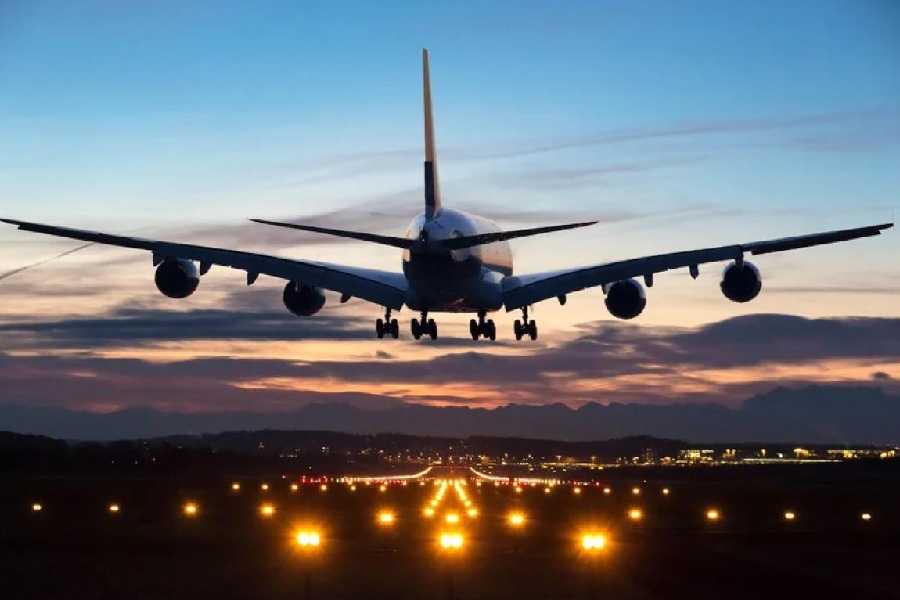Indian and international airlines are facing massive disruptions as tensions escalate in the Middle East, prompting multiple nations to shut their airspace. The resulting wave of flight cancellations, diversions, and delays has stranded thousands of passengers and caused significant financial losses for airlines.
Following Iranian missile attacks on the U.S. military base at Al Udeid in Doha — retaliation for American strikes on Iranian nuclear sites — countries including Qatar and Kuwait closed their airspace on Monday. The fallout has been swift.
“In view of the evolving situation and the closure of certain airspaces in the Middle East, Air India Express has temporarily suspended flights to the region,” the airline said. It operates services to over 15 destinations in the Middle East.
Air India, already dealing with operational disruptions, suspended all operations to the Middle East, Europe, and five destinations in the US and Canada.
“Amid the developing situation in the Middle East, Air India has ceased all operations to the region as well as to and from the East Coast of North America and Europe with immediate effect until further notice,” the airline said.
“Our India-bound flights from North America are diverting back to their respective origins and others are being diverted back to India or re-routed away from the closed airspaces,” it added.
IndiGo stated on Tuesday that it was “presently and progressively resuming operations as airports across the Middle East gradually reopen.”
“We continue to monitor the situation closely and are fully considering the safest available flight paths to ensure secure and seamless travel,” the airline posted on X.
SpiceJet and Akasa Air also confirmed that some of their operations may be affected due to the ongoing airspace closures.
At Delhi airport alone, at least 20 flight departures and 28 arrivals have been cancelled since Monday night. The Chaudhary Charan Singh International Airport in Lucknow urged passengers to confirm flight status with airlines before arriving.
“Due to the closure of airspace in the Middle East, flight operations from Chaudhary Charan Singh International Airport have been impacted,” a spokesperson said.
An evacuation flight under Operation Sindhu, carrying 160 Indians who had crossed into Jordan from Israel, was also caught in the turmoil. Flight J91254, which departed Amman for Kuwait and then onward to Delhi, had to return to Kuwait midway.
“The evacuees have been put in a hall at the airport and await further instructions,” said Arvind Shukla, a post-doctoral fellow aboard the flight. Despite being on the move since Sunday, “the evacuees... are maintaining calm and waiting for further instructions,” he added.
Some relief came early Tuesday when flights resumed from Thiruvananthapuram International Airport following partial airspace reopening.
Emirates, Etihad Airways, and Air Arabia resumed services, with flights to Dubai, Abu Dhabi, and Sharjah operating without disruption.
However, several scheduled services were cancelled earlier in the day. Affected flights included Air India Express services to Muscat, Sharjah, Abu Dhabi, Dammam, and Dubai, as well as Qatar Airways' Doha-bound flight, Kuwait Airways’ service to Kuwait, and IndiGo’s flight to Sharjah.
To handle passenger congestion, Thiruvananthapuram airport authorities set up additional seating and service counters at Terminal 2, deploying extra staff to assist travellers.
Cochin International Airport also experienced disruption, with at least 17 flights delayed, cancelled, or diverted as of a 3:00 am advisory.
Globally, the impact has been widespread. According to a Reuters reports, after briefly closing their airspace, Bahrain and Kuwait both reopened them, according to state news media. Dubai Airports said its operations had resumed after a brief suspension, though it warned of delays or cancellations on social media site X. Qatar also closed its airspace.
Over two dozen flights to Doha (primarily from Qatar Airways) and several flights to Dubai were diverted. IAG's Iberia reversed a decision to resume Doha services. Major carriers such as Finnair, Singapore Airlines, Air France KLM, British Airways, and Air Astana cancelled flights to Dubai, Doha, Riyadh, and Beirut.
Finnair cancelled flights to Doha until June 30, and Air France suspended Beirut operations until Wednesday. American Airlines, United Airlines, and Air Canada had already suspended flights to Qatar and Dubai.
With Russian and Ukrainian airspace already closed due to the ongoing war, the Middle East had become a key transit corridor between Europe and Asia. Airlines are now rerouting flights through the Caspian Sea or via Egypt and Saudi Arabia, according to aviation analytics firm Cirium.
Osprey Flight Solutions, an aviation risk consultancy, warned of ongoing threats to U.S. military bases in the region. Further complicating navigation, Swiss company SkAI reported over 150 GPS spoofing incidents in the Persian Gulf in a single 24-hour period — a serious safety concern for commercial aviation.
“Everything happened so quick,” said Miret Padovani, a passenger stranded at Doha’s Hamad International Airport. “I actually heard from people in the first class lounge that the missiles were being sent this way before they were even in the news.”












